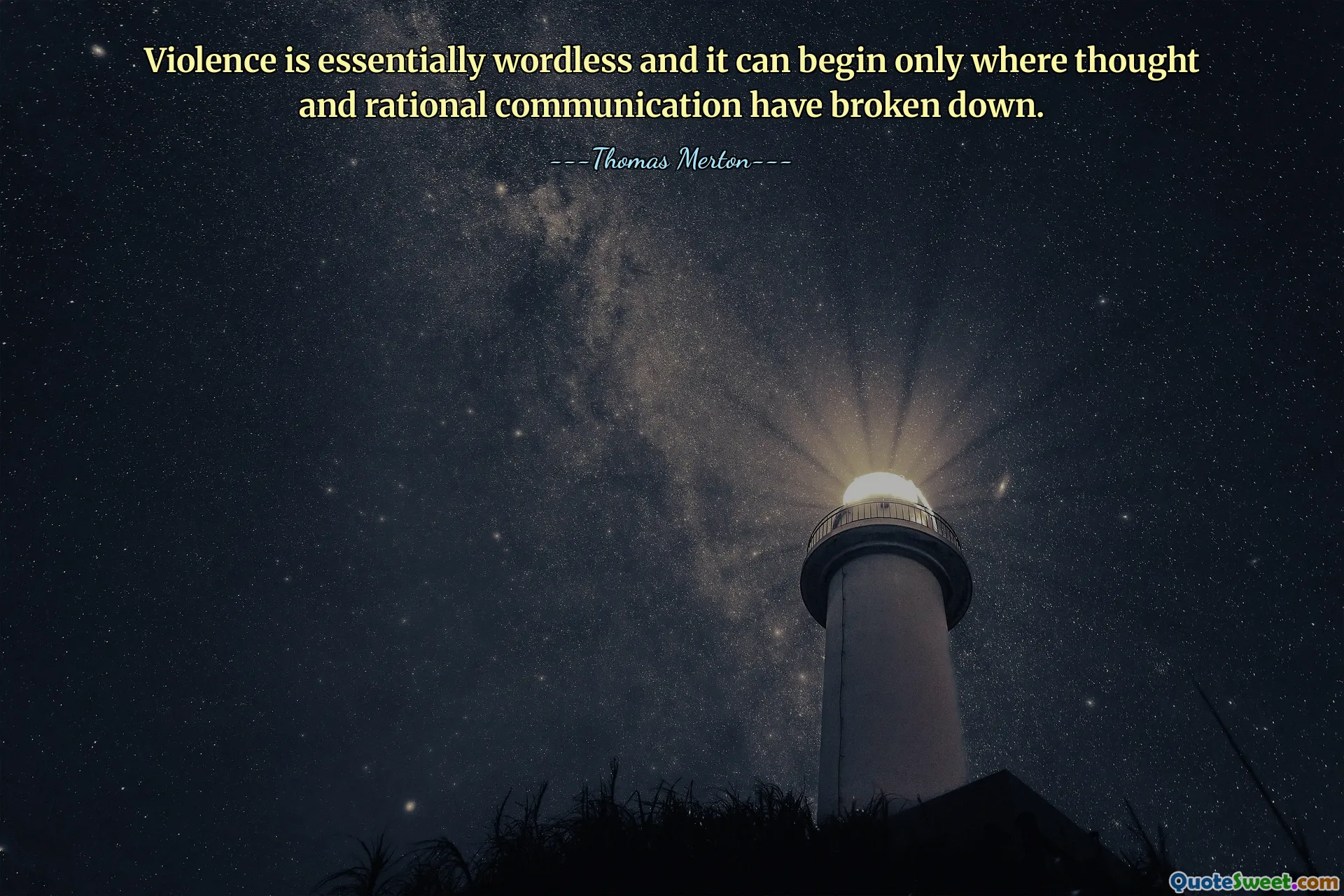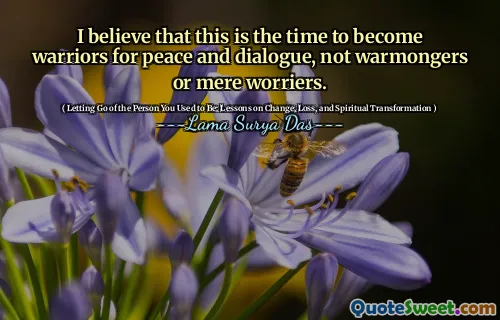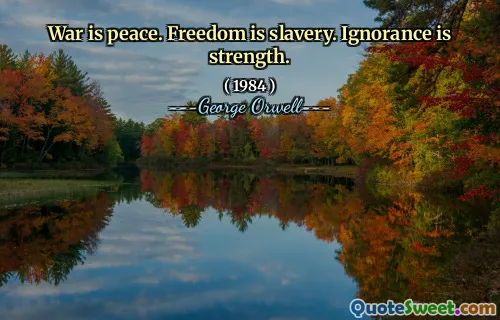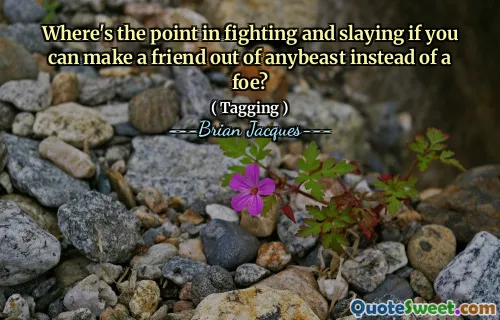
Violence is essentially wordless and it can begin only where thought and rational communication have broken down.
The quote underscores a profound insight into the nature of violence, suggesting that it often stems from the failure of language and rational discourse. When people lose the ability or willingness to communicate effectively, misunderstandings and tensions tend to escalate beyond words into actions that can be destructive and harmful. This highlights the importance of dialogue, empathy, and active listening as preventative tools against violence. In a world where communication is often rushed, misunderstood, or ignored, this quote invites us to reflect on how crucial it is to foster environments that prioritize clarity and compassion. Rational communication acts as a bridge, allowing conflicting parties to explore their differences with a mindset geared toward understanding rather than victory. When communication fails, frustrations and prejudices may become internalized, leading to a breakdown in social cohesion and fueling violent behaviors. Moreover, the quote implicitly critiques societies and systems that suppress open dialogue, whether through censorship, oppression, or indifference, as these conditions contribute to the erosion of trust and the emergence of hostility. Ultimately, this insight calls for a conscious effort to prioritize constructive conversations over destructive conflicts, emphasizing that violence is not an inevitable outcome but a consequence of neglected communication. Bridging gaps in understanding and cultivating patience and dialogue are essential steps toward building more peaceful and just communities.








